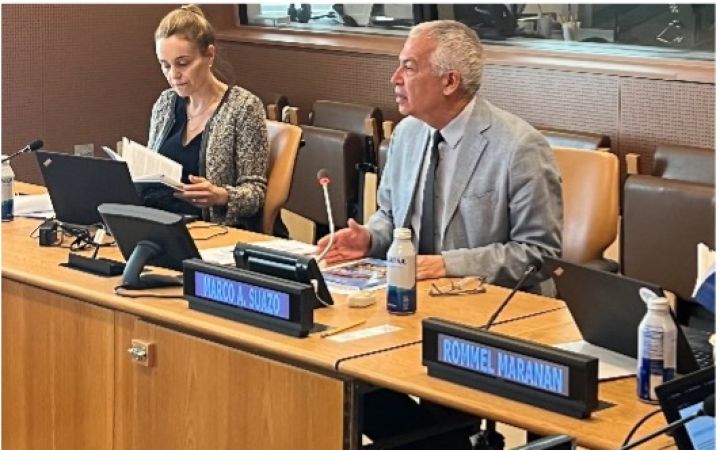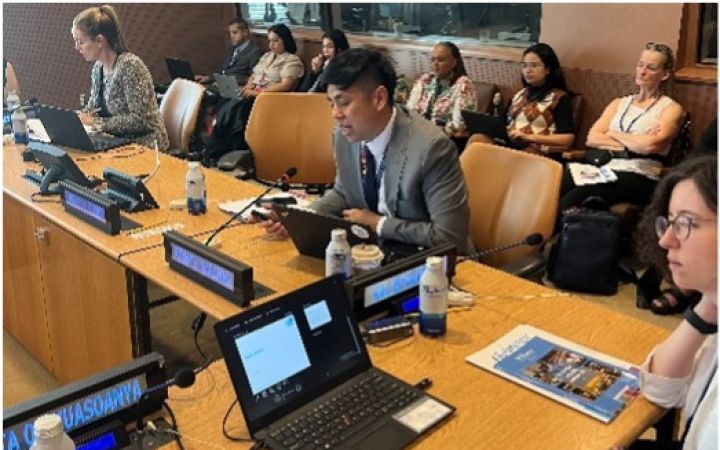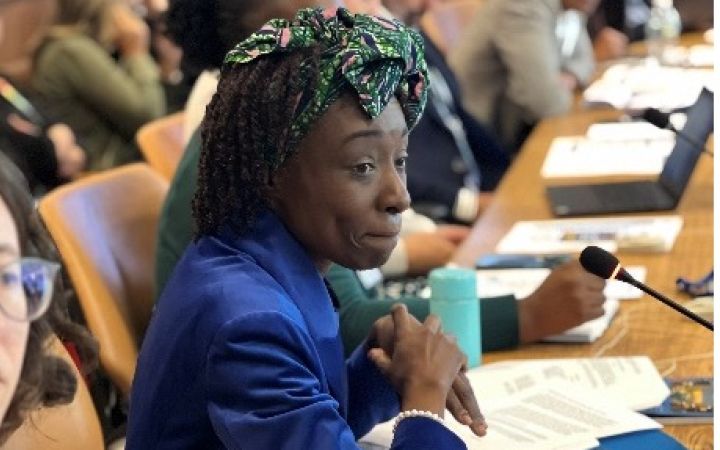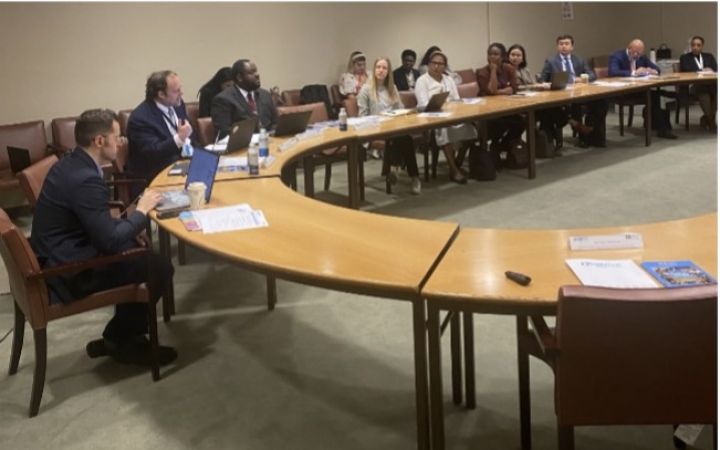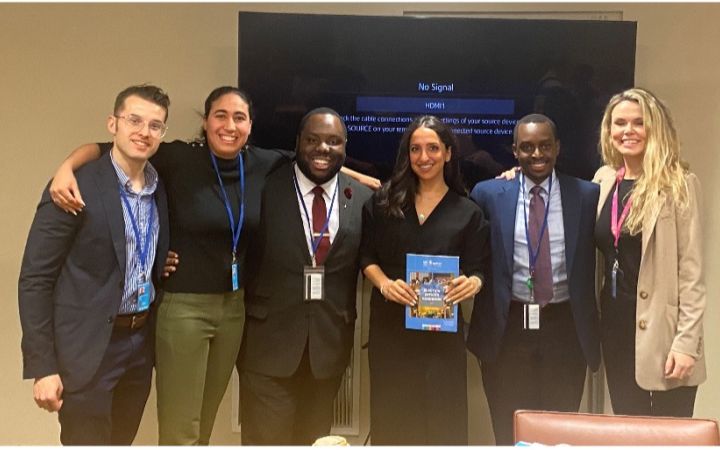05 June 2023, New York, USA - The workshop began with Mr. Marco A. Suazo, Head of the UNITAR’s New York office welcoming all distinguished delegates, election officers, and all other UN personnel joining this important workshop. Mr Suazo then proceeded to introduce and sequentially pass the floor to the first presenter of the workshop. Mr Wannes Lint, Intergovernmental Affairs Officer, General Assembly Affairs Branch. Mr Lint gave a detailed overview of Principal UN Organs and Elections conducted by The General Assembly for Members of The Other Principal Organs, Its Subsidiary Organs and Other Bodies &Rules and Procedures Related to Elections and Voting at the UN Economic and Social Council and Subsidiary Organs.
The floor was then passed to Mr Rommel Maranan, Associate Intergovernmental Affairs Officer of the General Assembly Affairs Branch. Mr Maranan gave an informative presentation in which the UN’s E-Delegate platform was detailed and discussed. This platform is mentioned as a centralized digital service source available to all delegates. Mr Wannes Lint, Intergovernmental Affairs Officer, General Assembly Affairs Branch followed suit by covering General Assembly Elections and by offering a chance for the participants to experience a mock election cycle. During this experience, participants were able to act in real-time as if they were part of a GA election process
To conclude the first day of this Workshop, Ms Vita Onwuasoanya, Legal Officer, Office of Legal Affairs. Discussed the rules of procedure for elections. In this overview, "How elections are conducted?" was the primary topic to allow future election officers to understand the mandated quorum, the conduct of elections, and the telling process. Participants followed this presentation with detailed questions concerning what a “Clean Slate” is, and how it affects the elections process on a case-by-case basis.
The first day of the Elections to UN Organs: Workshop for Election Officers ended with Mr Suazo thanking all participants for joining.
The first day of the Elections to UN Organs: Workshop for Election Officers ended with H.E. Mr Suazo thanking all participants for joining.
On the second day of the Elections to UN Organs: Workshop for Election Officers, Mr Jochen De Vylder, Human Rights Officer from the Office of the High Commissioner for Human Rights, New York Office, kicked off the morning session. He covered various important topics, including a general introduction to human rights treaty bodies and their elections, insights into forthcoming elections, and the significance of specific meetings such as the Convention on Enforced Disappearance, the Convention on the Elimination of Racial Discrimination, and the Convention on the Rights of Migrant Workers and Members of Their Families. Mr De Vylder's presentation provided valuable knowledge to the election officers, enhancing their understanding of these matters and their role in promoting human rights globally.
During the workshop, Mr G. Justin Jepson, Political Affairs Officer from the Security Council Subsidiary Organs Branch at SCAD, provided a comprehensive review of the relationship between the Security Council and its Subsidiary Organs. His session focused on elucidating the intricate machinery of the Security Council and its committees, shedding light on key aspects such as the Security Council selection shortlist and the election process for Chairs of Sanctions Committees. Through his informative presentation, participants gained valuable insights into the functioning and dynamics of the Security Council and its Subsidiary Organs.
Towards the end of the workshop, Ms Vilde Michelsen Værøyvik, Senior Election Officer, Permanent Mission of Norway to the United Nations, Ms. Rawa Zoghbi Counsellor, Election Officer at the Permanent Mission of Lebanon to the United Nations, Mr. Kavoy A. Ashley, First Secretary, and election officer at the Permanent Mission of Jamaica to the United Nations, and Mr Marvin Ikondere, Third Secretary, and election officer at the Permanent Mission of Uganda to the United Nations shared their experience as election officers. Each election officer outlined the tools to use, networking, and what to focus on to run a successful campaign. Mr. Kavoy A. Ashley, detailed campaigning before and during the elections and how to plan and prepare your digital What’s App campaign.
Ms Rawa Zoghbi and all the elections officers panellists unanimously agreed that the handbook provided valuable guidance and strategic perspectives that would significantly enhance their electoral endeavours. The comprehensive information and practical advice contained within the handbook were highly regarded, empowering the election officers to approach their campaigns and election processes with newfound confidence and expertise. The handbook was recognized as an invaluable tool that would continue to be a valuable resource, equipping election officers with the necessary knowledge and insights to navigate the complexities of elections successfully.
The Election Officer Handbook is available, free of charge, in both print and online e-book format.


